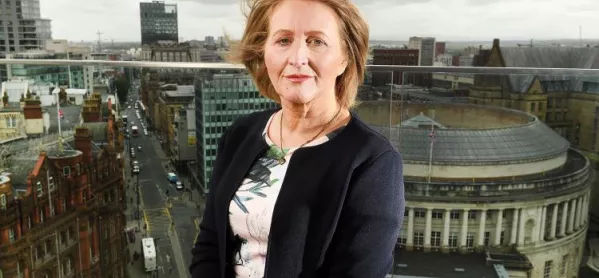- Home
- Ditch tax cuts and spend on pupils, PM hopefuls told
Ditch tax cuts and spend on pupils, PM hopefuls told

The children’s commissioner for England has said billions of pounds being earmarked for tax cuts by the Conservative leadership rivals should instead be used to “mend broken childhoods”.
Anne Longfield is using the launch of a new report today to call for an extra £10 billion a year investment in services for vulnerable children from either Boris Johnson or Jeremy Hunt if they become prime minister.
Off-rolling: Schools to be named and shamed
Children’s commissioner: Political chaos means pupils face ‘wretched’ futures
Profile: Anne Longfield
Research by the commissioner’s office estimates 2.3 million children - one in five children in England - are growing up with a vulnerable family background.
This number includes 830,000 children who are “invisible” to support services, according to the report.
Vulnerable backgrounds include those with parents with mental illnesses, addiction problems or domestic violence issues.
The report estimated that “support is unclear or non-existent” for 1.6 million children from a vulnerable background.
The study found: “All the vulnerabilities identified can pose a risk to children’s wellbeing and long-term life chances.
“Many of these children start school significantly below the expected level of development, and their progress tends to be lower on average, meaning that they have a higher risk of leaving school without qualifications.”
The report states that new data on funding to help vulnerable children “shows a system that is spending increasingly high amounts on a very small number of children with acute needs.
“A quarter, 25 per cent, of the amount councils spend on children now goes on the 1.1 per cent of children who need acute and specialist services - such as children in care.
“A child in the most intensive residential placements costs on average £192,000 a year to look after.
“In one local authority looked at by the children’s commissioner, ten children are costing 20 per cent of the entire children’s services budget.”
Ms Longfield said that with the Institute for Fiscal Studies estimating the cost of Mr Hunt’s corporation tax plans as £13 billion a year, and Mr Johnson’s income tax changes coming in at £9 billion per annum, the money should instead be spent on vulnerable children.
The commissioner will demand more investment in early years initiatives, Sure Start, family hubs and parenting support.
She will call for schools to open later and in the holidays and youth services to tackle gang violence.
The children’s commissioner will say: “I want to challenge the contenders for the Conservative leadership and the keys to Number 10 what they intend to do about this.
“I’ve heard them talk about runways, immigration, Islamophobia, even model buses - but not about children. They should.
“I’ve heard contenders for the Conservative leadership pledge corporation tax cuts amounting to £13 billion, higher NI thresholds costing £11 billion, a raised threshold for the higher income tax rate which would cost GBP9 billion.
“Labour’s promise to abolish tuition fees will cost around £8 billion - but where is the promise to the children who might hope that one day they too will go to university?
“Our initial calculation suggests it might cost in the region of £10 billion per year to fix this broken system.
“It might be more, it might be less, but what I do believe is it’ll save money in the long term. The cost of social chaos is immense.”
The study found that 831,000 children are living in households that report domestic abuse; 472,000 children are living in families with addiction problems, and 900,000 children are growing up in a family where there are parental mental health problems.
Other findings were that two million children are “living in food poverty”, 723,000 children receive statutory intervention from the state and 398,000 children in so-called “troubled families” are being worked with.
The number of children living in temporary accommodation increased by 76 per cent between 2012 and 2018, the study found.
The rate of permanent exclusions from school increased by more than 50 per cent between 2012-13 and 2016-17, while the rate of children experiencing a fixed term exclusion increased by 20 per cent over the same period.
The proportion of children in custody who were sentenced for a violent offence rose from 21 per cent in 2012 to 40 per cent in 2018, according to the report.
A government spokesperson said: “It is a measure of a strong society how we support the most vulnerable people in this country.
“We are making record investments in education and in children’s services to help improve outcomes and support young people to overcome the challenges they face.”
Keep reading for just £1 per month
You've reached your limit of free articles this month. Subscribe for £1 per month for three months and get:
- Unlimited access to all Tes magazine content
- Exclusive subscriber-only stories
- Award-winning email newsletters



